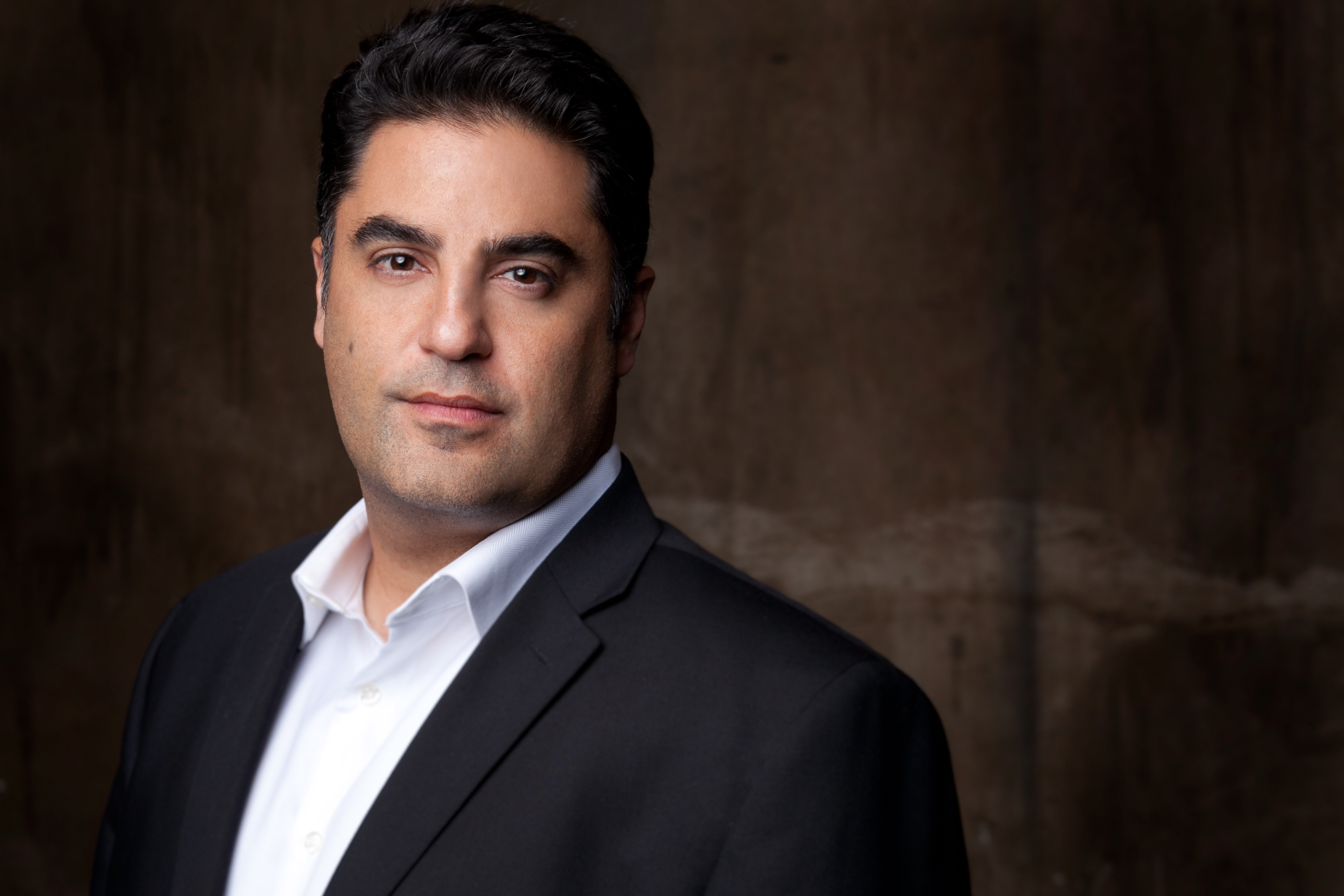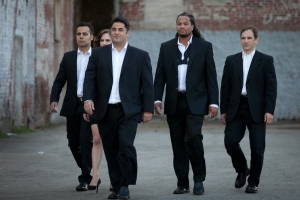
Cenk Uyger
10 years, 750 million views, One very popular Internet talk show, And Cenk Uygur, the Turkish CEO unafraid to do it his way.
It’s Monday night, and Cenk Uygur is an avalanche of motivation. The CEO is hosting his live, teleprompter-free talk show, The Young Turks with Cenk Uygur on Current TV. Earlier, he hosted his daily YouTube hit The Young Turks, the world’s most viewed Internet news show. With every second, the new media mogul pounces on his opponents.
With Uygur, there is no shortage of political expose, raw energy and downright addictive talk. For every YouTube view—The Turks has 750 million since 2005—Uygur seems to have a biting but brilliant point to make.“You go and say ‘Oh Planned Parenthood, indecent, murderous, death,’ and then there are 6,100 (violent) acts against (Planned Parenthood). These are all wild coincidences,” he yelps, ensnaring both sarcasm and seriousness. “It wouldn’t have anything to do with the culture of hate being spread by conservatives in this country, would it?”
As a result, The Young Turks has grown dramatically since its inception in 2002 and spawned the 10-channel Young Turks Network, which boasts 30 million-plus YouTube views a month, generates a six-figure monthly revenue that has tripled every year for the last three years, and boasts a staff of 50.
“People are sick of the fakeness on TV,” Uygur said. “We succeeded online because it’s an alternative to the overwhelming fakeness on TV.”
The Journey
A journey of a thousand miles begins with a step, the ancient Chinese said. For Uygur, 42, that journey began with jumping off his Ivy-League career track to embark on a political radio TV show, sans any budget and staff.

Cenk Uygur with members of The Young Turks staff
Born in Istanbul Turkey, Uygur moved to New Jersey with his family at the age of eight. Uygur has always up to his no-duty-shirking dad who went from being an olive farmer to an American suburb-dwelling commercial real estate manager, all without a ‘Plan B’ to fall back on.
“My dad was scared to death about my show,” Uygur said. “He didn’t grow up having a margin of risk. If he failed, there was no safety net, so he had that aversion to risk.”
But in February 2002, when Uygur launched, he was determined to start his bold journey, no matter how many risky steps he had to take. The Young Turks had no money or marketing, and no fans. Family and friends pitched in to buy Uygur $25,000 in studio equipment, and when the initial staff arrived, they worked for free.
Yet Uygur’s vision for a show that delivers truth to people and inspires systematic change was daring and motivating. It started as a radio show, was picked up by Sirius Satellite Radio and later evolved into the present-day live-streaming video phenomenon. At the same time, supporters stepped up-, including best friend of 30 years, Producer David Koller, who quit his job and moved into Uygur’s Los Angeles offices to work salary free.
In an interview with Forefront magazine, Uygur opined on the latest controversy involving President Barack Obama’s comment that entrepreneurs rarely build their business babies alone. Some critics lashed out saying the president was wrong, that they built their businesses all by themselves. Not only did Uygur slam the critics on his show, he argued that the support of others is crucial.
“A million people have helped along the way,” Uygur said.
Constant Motion
Now Uygur is in “constant motion,” says the husband and father of one. He works from 6 am to 9 pm: 15-hour super shifts of meetings, reading the news, airing, and talking with a gigantic cable company who wants to partner.
The self-proclaimed “big fat ass” abstains from sugar and junk food Monday through Thursday, but come Friday, Uygur is eager to dig into to the nearest piece of French toast. But what sustains Uygur’s remarkable growth spurt is passion and persistence, he said. And the fact that he frantically acts on his counterintuition.
“People are sick of the fakeness on TV. We succeeded online because it’s an alternative to the overwhelming fakeness on TV.”
Since day one, naysayers have questioned how YouTube videos could pay off, but Uygur indulged in the Internet’s low-cost overhead. Instead of trying to push one lengthier viral video, Uygur worked to churn out eight YouTube videos a day to attract a range of viewers. Some thought his liberal tone was an impediment; he, however, saw it to be a cure for the troubles of TV news.After increasing ratings for MSNBC as a primetime talk host, Uygur was offered a well-paid weekend talk spot on the station but was asked to soften his tone. Preferring people power over corporate perks, he flat-out turned it down and then posted an 18-minute YouTube video about why he walked away.
“You have to know your field and be confident enough in your own strategy and not get swayed about what the crowd is doing,” he said.

Cenk Uygur on the set of his show
“Don’t listen to what the market is doing,” Uygur advised. “Instead find what the market isn’t doing and serve that audience.”
Following his heart, Uygur has ushered in a bold new world that was unforeseen in 2002: a world addicted to political crackdown shows, and where 80 percent of his revenue comes from YouTube ads and 20 percent comes straight from website members.
“It’s a huge advantage to establish yourself and corner a market position before anybody else comes in,” Uygur said. “But that means you have to believe in your convictions and be there before anybody else.”

